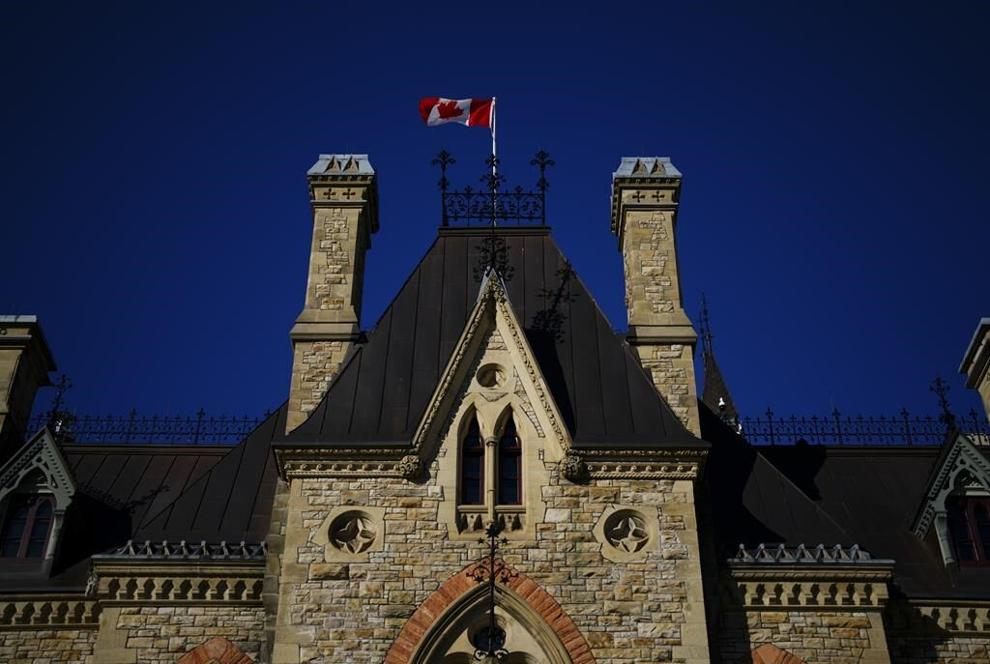
A Canada flag flies on top of the West Block on Parliament Hill in Ottawa on Tuesday, April 16, 2024. THE CANADIAN PRESS/Sean Kilpatrick
Finance Minister Chrystia Freeland presented the federal budget in the House of Commons, aiming to keep the deficit capped at $40 billion through a combination of increased taxes and government revenues. The budget allocates $53 billion in new spending, primarily focused on addressing economic justice for younger generations.
Freeland emphasized the government's commitment to building more homes and reducing living costs to foster economic growth for all Canadians. The Liberal government plans to fund its initiatives mainly through higher taxes on the wealthiest individuals and businesses, as well as from stronger-than-expected government revenues.
One significant proposal in the budget is an increase in the capital gains inclusion rate, affecting the taxable share of profits from asset sales. The taxable portion of capital gains exceeding $250,000 would rise from half to two-thirds, impacting only 0.1 percent of Canadians and generating nearly $20 billion in revenue over five years. Additionally, corporations and trusts will face the same two-thirds inclusion rate for all capital gains.
Freeland acknowledged potential resistance to the tax changes, particularly from high-income earners, but stressed the importance of considering the collective welfare of Canadian society. She urged the wealthiest individuals to reflect on the type of country they wish to live in.
The Canadian Federation of Independent Business (CFIB) provided initial feedback on the tax adjustments, suggesting that most small businesses would benefit from the changes. The government's decision to increase the lifetime capital gains exemption from $1 million to $1.25 million is expected to be advantageous for small business owners. Furthermore, the introduction of the Canadian Entrepreneurs' Incentive, reducing the inclusion rate on eligible capital gains, is seen as a positive step.
However, concerns were raised regarding the impact of the capital gains inclusion rate increase on medium-sized businesses. Dan Kelly, president of the CFIB, highlighted potential drawbacks for this demographic, despite acknowledging benefits for smaller enterprises.
While federal spending has increased, it remains below the government's self-imposed fiscal limits. The deficit is projected to widen, but it still adheres to the fiscal anchors set in the fall economic statement. These anchors aim to keep deficits below one percent of GDP from 2026-27 onwards and to lower the debt-to-GDP ratio by 2024-25.
Despite the budget's focus on affordability and housing, it also allocates funds for initiatives aimed at enhancing productivity. This includes investments in artificial intelligence capacity and research support to drive technological advancements in Canada.
While the budget aims to address economic challenges and promote growth, concerns remain about the potential inflationary effects of increased deficits. Governor Tiff Macklem of the Bank of Canada has advocated for fiscal policies aligned with monetary policies to combat inflation effectively.
Overall, the budget presents a balancing act between addressing immediate economic needs and ensuring long-term fiscal sustainability. It reflects the government's commitment to supporting Canadians through targeted investments while maintaining fiscal responsibility.















